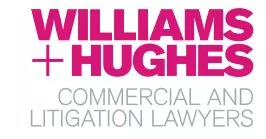The State and Commonwealth Governments are in the process of enacting legislation to provide relief to commercial tenants affected by Covid-19.
The West Australian State Government has recently passed legislation that limits the ability of a landlord to take certain action against tenants under a "small commercial lease" during the "emergency period" (the Commercial Tenancies (COVID-19 Responses) Act 2020).
The emergency period roughly aligns with the Commonwealth Government's Jobkeeper payment period, being 30 March – 29 September 2020, unless another end date is specified. This new State legislation is not yet in force, but it should be very soon.
The relief provided by the new Act operates in favour of tenants under "small commercial leases". A small commercial lease means:
- a retail shop lease as defined in the Commercial Tenancy (Retail Shops) Agreements Act 1985
- a lease where the tenant is a small business as defined in the Small Business Development Corporation Act 1983
- a lease where the tenant is an incorporated association as defined in the Associations Incorporation Act 2015
- another type of lease as prescribed in Regulations to the new Act (yet to be determined).
During the emergency period protections in the new Act include:
- A six-month moratorium on evictions due to non-payment of rent
- A freeze on rent increases
- A restriction on penalties for tenants who do not trade or reduce their trading hours
- A prohibition on landlords making a claim on any form of security (e.g. a bank guarantee or security deposit) for the performance of the tenant's obligations under the lease
- A prohibition on landlords progressing action against a tenant for a breach that occurred after 30 March 2020, but before commencement of the new Act
- A resolution mechanism for disputes arising out of, or in relation to, the operation of the legislation or a proposed new Code of Conduct (see below), including a mechanism to protect landlords where tenants are refusing to pay rent despite the capacity to do so.
The West Australian Government will soon pass Regulations to operate in conjunction with the new Act. These Regulations will deal with specific points not set out in the Act. For example, the Regulations might exclude certain small businesses from the protection that is given by the Act.
The Regulations will also set out a new Code of Conduct equivalent to the National Cabinet Mandatory Code of Conduct – Small to Medium (SME) Commercial Leasing Principles during COVID. This is the Code of Conduct developed by the Commonwealth Government and released on 7 April 2020 to regulate how a landlord must negotiate with tenants who have suffered Covid-19 related downturns.
Of note, the Code of Conduct requires that landlords must offer tenants proportionate reductions in rent payable in the form of waivers (i.e. a reduction in rent that will not be recovered by the landlord) and deferrals (i.e. a delay in payment of part of the rent which will be recovered) of up to 100% of the amount ordinarily payable, on a case-by-case basis, based on the reduction in the tenant's trade during the Covid-19 pandemic period and a subsequent reasonable recovery period.
So, if a tenant's turnover is affected by Covid-19, it may be able to rely on the new Act and the Code of Conduct to negotiate a rent reduction and waiver with their landlord.
The Regulations may impact on the matters outlined above. Specific advice is needed on a case by case basis. However, many small businesses should take some comfort that if they suffer a Covid-19 related decline in turnover, protection from adverse action by their landlord may be available.
Other legislation is also currently before the West Australian Parliament which, if passed, is expected to allow tenants to request a termination of their lease if their business will not recover from a Covid-19 related decline in turnover. If passed, this legislation may limit a tenant's liability if they have to terminate their lease early for that reason.
The content of this article is intended to provide a general guide to the subject matter. Specialist advice should be sought about your specific circumstances.


